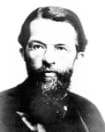What is Austrian Economics?

We do not simply study quantitative relationships but also the nature or essence of economic phenomena. How can we attain to the knowledge of this latter (e.g., the nature of value, rent, profit, the division of labor, bimetallism, etc.) by mathematical methods?
The central philosophy of the Austrian School of Economics is grounded in the theory of subjective value, individual freedom, and underscores the dynamics of free markets, of private property and the Rule of Law. Thus, its approach is characterized by methodological individualism and the principles of marginal utility and opportunity costs. The school also stands in explicit opposition to methods that justify state interventions, which are neither compatible with free markets nor with the social fabric of a society.
As all human actions imply the cost of a forgone opportunity, any individual value judgment reflects the relationship between an appraising mind and the objects considered. The aim of the Austrian School of Economics hence is to explain how and why people cooperate in spontaneously evolving markets and compete for different ends and the alternative use of scarce means.
While most current schools of economic thought strive to explain the infinite complexity of human actions or their purposes with quantitative techniques and also endorse mathematical methods or econometric models to outline their policies. Austrian Economics is not about things or tangible material objects. It is about sovereign citizens, their boundless choices and ultimate accountability.





























